Camp Stove Fuel Guide: Which to Choose & Why
Choosing which camp stove fuel to use will likely depend on which stove you choose. Alternatively, you may choose your stove based on which fuel type you prefer.
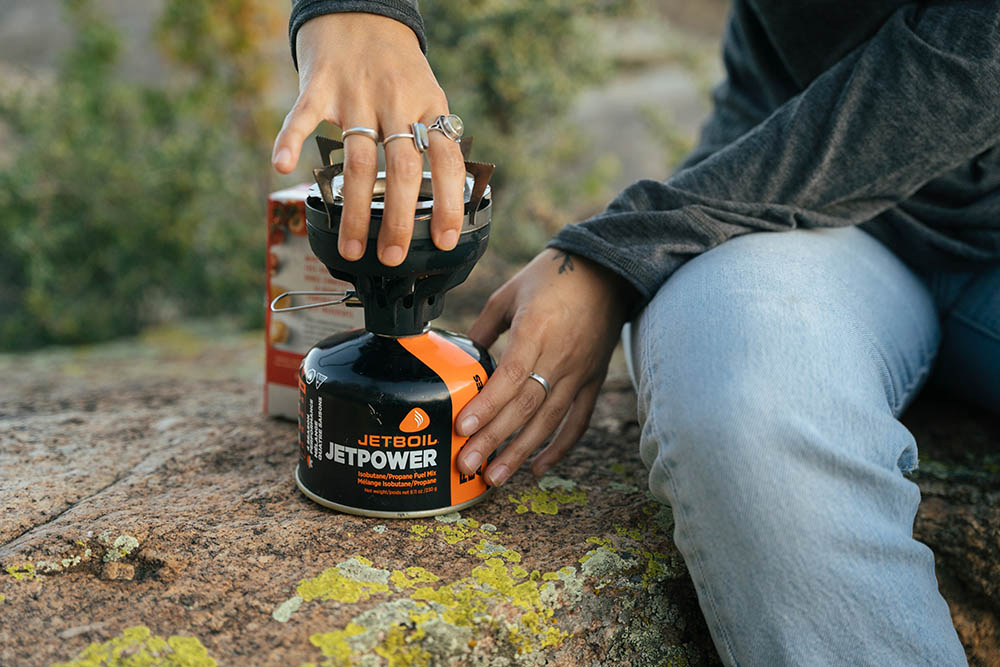
We'll cover the different types of fuels available and when it's best to use each one. So whether you're an experienced camper or just getting started, use this Camp Stove Fuel Guide, to learn which kinds of fuel work best for various types of backpacking and camping scenarios so you can power up your camp stoves with confidence.
Regardless of what type of camp fuel you use, it's critical to monitor conditions and know in advance what types of fires or stoves are allowed at your campsite or backcountry camping spot. When the fire danger is high (or banned) you can often use a camp stove with fuel.
Important: Always read your camp stove manufacturers manual to understand which fuels can be used with your specific stove model.
Using the wrong fuel can be dangerous. Also, you could ruin your stove which won't help you when you're on the trail or in the backcountry.
Camp Stove Fuel Types
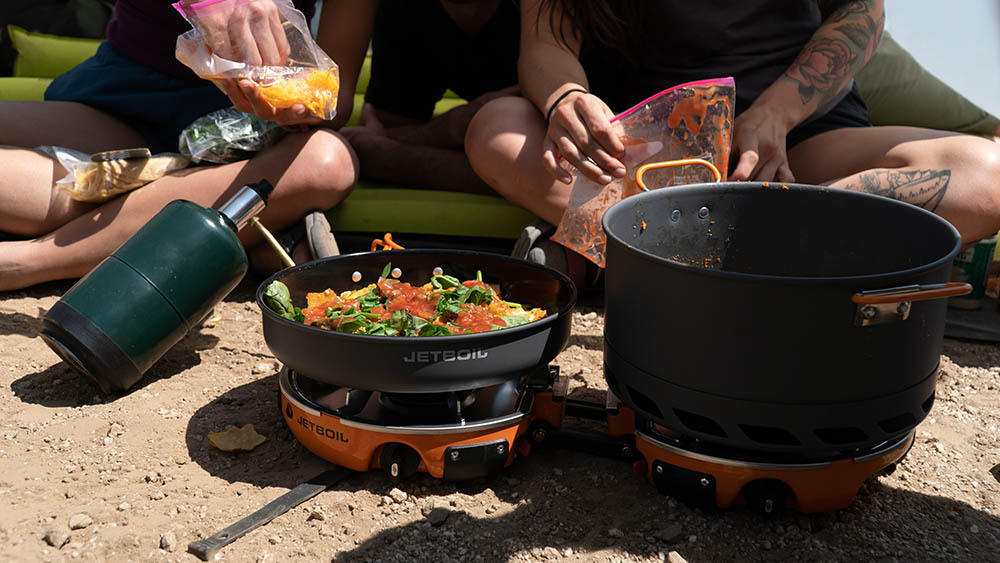
There are numerous camp stoves on the market and a variety of fuel types available. Below are some of the most common and a few outliers.
Propane
Propane is one of the most popular fuels used for camping and camp stoves.
It holds a very vapor high pressure compared to other fuel types, including at very low temperatures. This makes it a great performing fuel and an excellent fuel choice for most situations.
Camp stove propane cylinders can be easily purchased in many big-box, outdoor, hardware, and grocery stores.
Many propane camp stoves are more suitable for car camping as the stoves and fuel canisters are often larger and heavier than canisters used for compact backpacking stoves.
The Jetboil Genesis Basecamp is a popular and reliable camp stove that uses propane.
Butane
Butane is another popular fuel among campers. It is gaining popularity in North America due to its convenient and easy to install canister design.
Like propane stoves, many butane camp stoves are larger and more suitable for car camping than backpacking.
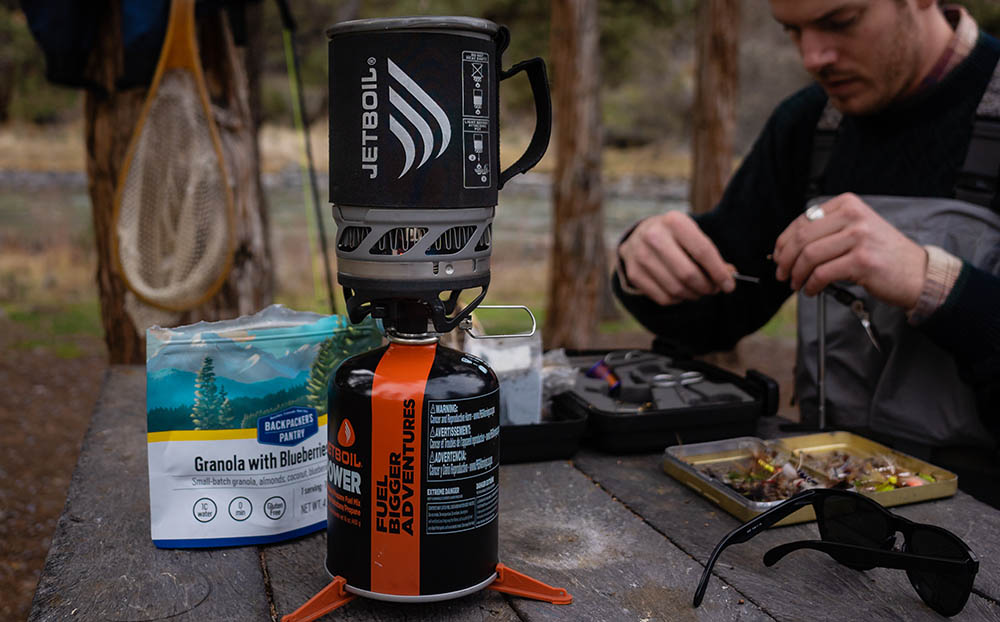
Isobutane
Although in most cases, Butane fuel will perform adequately for camp cooking needs, in more extreme cases (like very cold temperatures or prolonged usage) it can lose pressure more easily. Isobutane is a variant of Butane that can hold a higher vapor pressure, making it a better performing fuel.
However, Isobutane is not often found on its own. Typically, it is mixed with propane to further improve its performance. See the Propane/Isobutane section for more details.
Propane/Isobutane Blend
Many camp and backpacking stoves, including most Jetboil models, can use a propane/isobutane blended fuel like JetPower.
This is a high-performing blend that combines cold-weather performance of propane with the lower pressure of isobutane. This allows the fuel to be stored in a much lighter weight canister compared to Propane, which requires a very heavy steel cylinder to contain its high pressure.
For this reason, it has become the most popular choice of fuel for the vast majority of backpacking conditions.
Many propane/isobutane canisters are recyclable. Just use a tool like the Crunchit to puncture the canister before disposal and recycling.
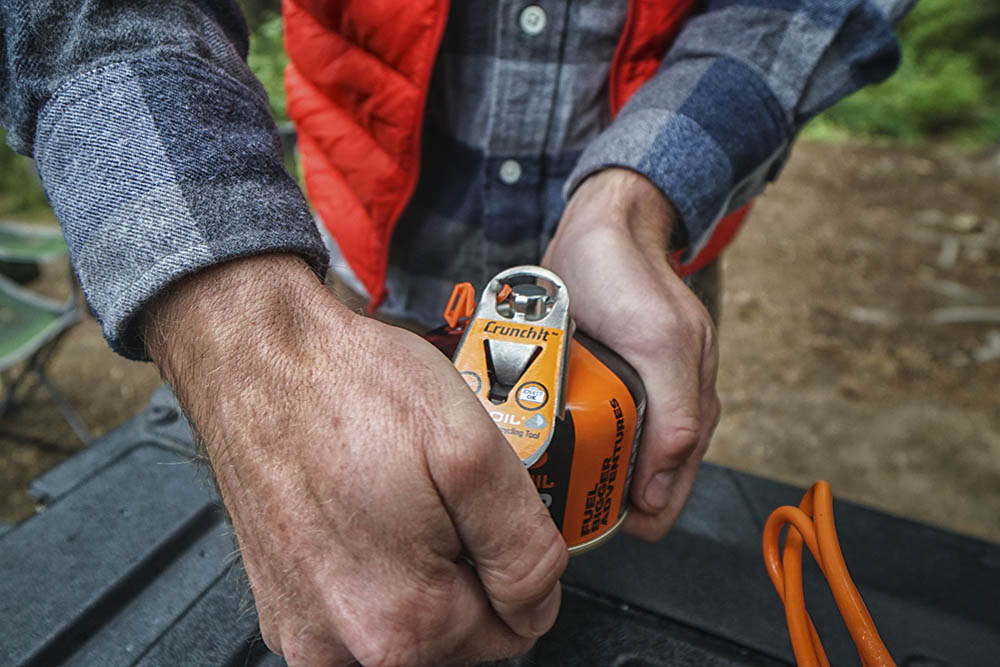
White Gas (Liquid Fuel)
White Gas stoves work by using a liquid fuel (opposed to a pressurized fuel like Propane). A manual pump is used to provide pressure to the fuel system.
While this is extra work, it does allow this type of stove to work in any condition, most importantly in extremely cold weather where pressurized fuel cylinders may stop performing.
Although it is useful in extreme conditions, it can be messy and potentially dangerous due to the handling of the fuel and is often considered an option for highly experienced adventurers.
White gas doesn't contain additives that are in other liquid fuels like automotive gasoline or kerosene, so it burns very clean.
It is relatively affordable and can often be found in many camping and outdoor stores.
Kerosene
Although not as common, kerosene is another type of fuel that can be used in specific camping stoves, sometimes requiring a modification to the stove to do so.
Kerosene can be found almost anywhere and is inexpensive, and may be considered for remote traveling adventures.
However, kerosene produces more smoke with odor, and emits more volatile byproducts compared to white Gas. Additionally, the sooty residue that's produced when burning kerosene can be difficult to clean and may affect the performance of your stove.
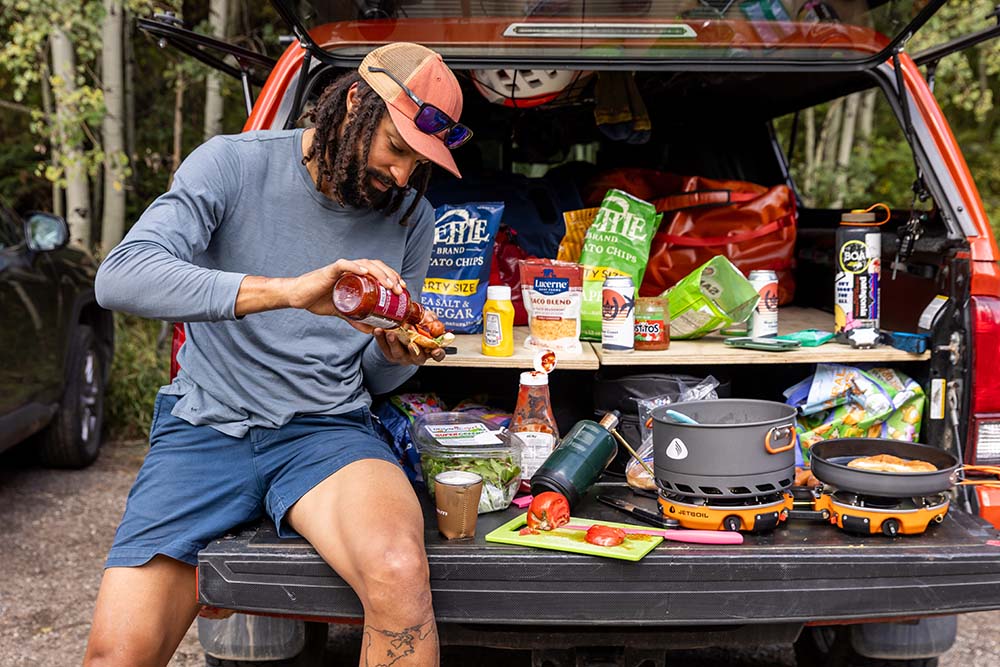
Alcohol
Alcohol fuels are another option for campers and backpackers that prefer a liquid fuel.
Alcohol stoves are small, lightweight, and easy to carry. You can purchase alcohol stoves on the market or make your own DIY alcohol stove out of readily available materials like a 12oz beer or soda can. Many backpackers may carry an alcohol stove as a backup to their primary stove.
Denatured alcohol is often the preferred for alcohol stoves and can be purchased at the hardware store.
Alternatively, pure ethanol can be used and purchased in the form of grain alcohol or "everclear" at a liquor store and used in an alcohol stove. Like denatured alcohol, pure ethanol burns very clean.
In a pinch rubbing alcohol can be used. The highest percentage of alcohol to water ratio, like 90% is best. However, it doesn't burn as clean as denatured alcohol or pure ethanol.
Wood
Many associate camping with sitting around a campsite fire. Wood fires are great when you can have one and cook some hot dogs or smores. That being said, an open fire doesn't give you the control of a dedicated wood camp stove.
Wood camp stoves come in a variety of sizes, but backpackers choose portable wood burning stoves that are packable and designed for cooking.
Dry wood sticks, about the diameter of a thumb, can be packed into the stove vertically to create an intense flame to cook on or boil water. Alternatively, wood pellets can be used in many wood camp stoves.
The availability of dry wood will depend on your location and weather. In certain fire conditions, a wood burning stove may not be smart, practical, or legal. Always check ahead with the forest service or proper authority.
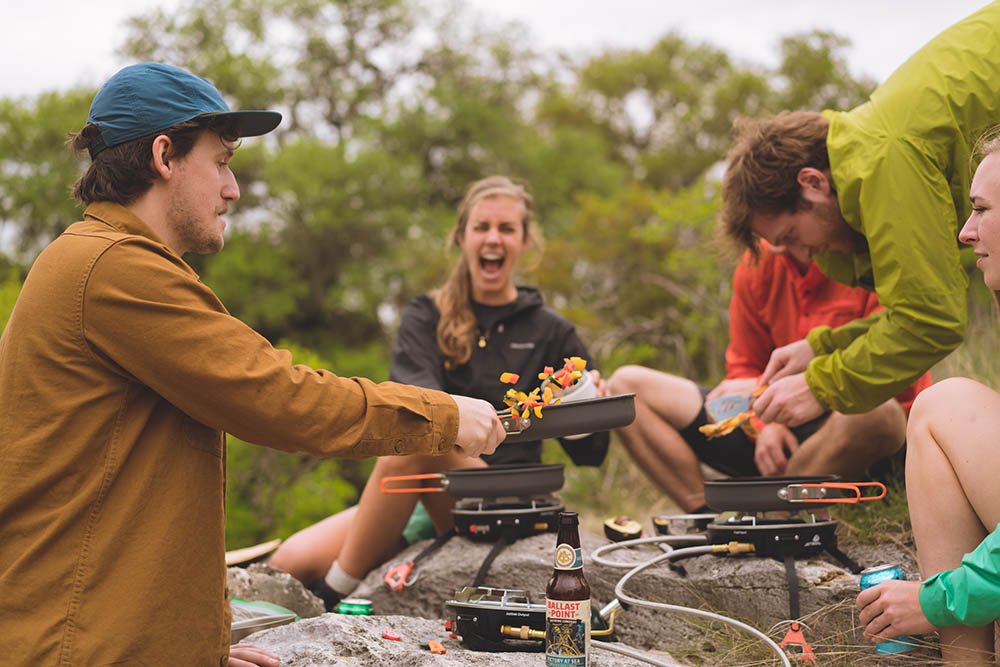
Hit the Outdoors and Start Cooking
If you're looking for an extremely versatile fuel option for your car camping stove, propane or butane are probably your best bet. They can be used in a variety of ways and provide a consistent flame that is easy to control.
For most backpackers, a propane/Isobutane blend fuel and stove is the ideal option for most situations due to its versatility, minimal weight, performance across a broad temperature range, and cost.